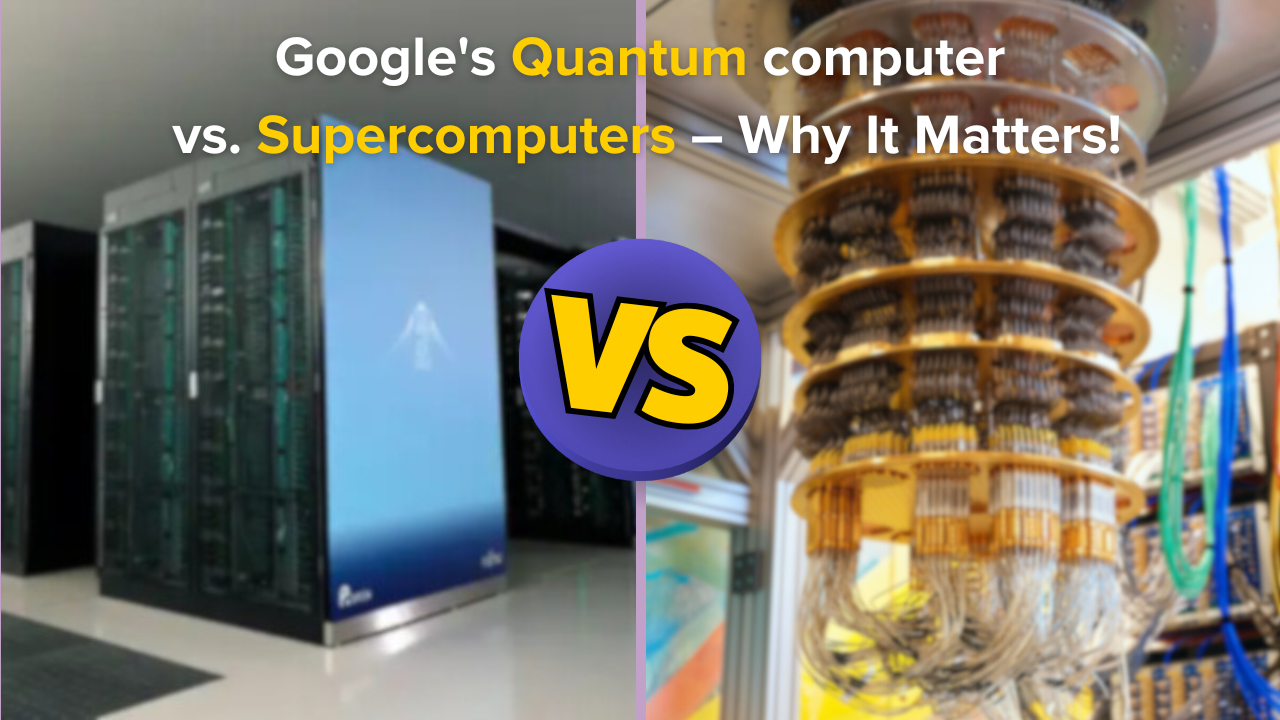If you’ve been keeping up with tech news, you’ve probably heard about Google’s latest Quantum computing breakthrough. Their new Quantum chip is a septillion (larger than the age of our universe) times faster than the current fastest supercomputer. But why is this such a big deal? Let’s break it down.
The Foundation of Computing: Bits and Transistors
Traditional computers rely on bits, which are essentially tiny switches that represent either 1 or 0. These bits are made up of transistors, and over the years, they’ve been getting smaller and smaller.
Currently, the size of a CPU bit is at 3 nanometers, which is roughly equal to the size of 14 atoms. As incredible as this is, we’re reaching a physical limit to how small these bits can get.
Why does size matter? Because the smaller the bits, the more you can fit into a CPU, and the greater the performance of the computer. However, with bits now approaching the atomic scale, further shrinking is becoming practically impossible.
The Subatomic Solution: Quantum Computing
To overcome this limitation, researchers are looking beyond traditional computing and diving into the world of quantum mechanics.
Unlike traditional computers, which use bits, quantum computers use Qubits and here’s the twist:
A bit can be either 0 or 1.
A Qubit, however, can be 0, 1, or both at the same time (a phenomenon known as superposition).
This gives Quantum computers an extraordinary advantage. By existing in multiple states simultaneously, they can perform many calculations at once, massively boosting performance. But with great performance- comes great instability.
The Challenge: Stability
While superposition is a quantum computer’s superpower, it also presents a massive challenge: stability. For a Qubit to be useful, it must maintain a stable state, meaning it needs to hold its 0, 1, or superposition state without collapsing prematurely. This is where Google’s quantum computing team has made a breakthrough.
The Result: Outpacing Supercomputers
With just 105 qubits, Google’s quantum chip has outperformed the world’s fastest classical supercomputer, which uses trillions of traditional bits. This isn’t just a small step forward—it’s a leap into a new era of computing
What does this mean for the Future?
Quantum computing is still in its early days, but the possibilities are endless. It could help solve complex scientific problems and change the way we use AI.
While Quantum computers won’t replace traditional ones just yet, that day is coming closer. As researchers keep exploring new ways, this technology could completely change how we approach compute problems.
Google’s breakthrough marks the start of the next-gen in computing. The future isn’t here yet, but we are one step closer.
Did we break your brains yet? Let us know in the comments!


Leave a Reply